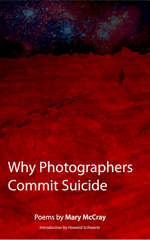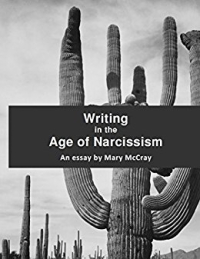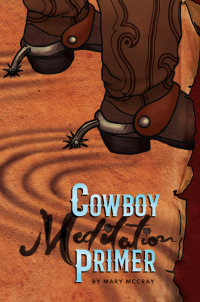 We’re getting down to the last two essays from the David Rivard class at Sarah Lawrence back in 1994-ish. It’s another Philip Levine one and I would say this is my favorite essay in the project so far, but then Levine is one of my favorite poets so this is not a surprising thing. This essay makes me want to do a deep dive into all of his prose. It’s called “Mine Own John Berryman” and it talks about his experience at the Iowa Writers Workshop with teachers Robert Lowell (who sucked) and John Berryman (who was great). This essay, like “Entering Poetry” which we covered a few weeks ago was from his autobiography of essays that had just come out, The Bread of Time (1994).
We’re getting down to the last two essays from the David Rivard class at Sarah Lawrence back in 1994-ish. It’s another Philip Levine one and I would say this is my favorite essay in the project so far, but then Levine is one of my favorite poets so this is not a surprising thing. This essay makes me want to do a deep dive into all of his prose. It’s called “Mine Own John Berryman” and it talks about his experience at the Iowa Writers Workshop with teachers Robert Lowell (who sucked) and John Berryman (who was great). This essay, like “Entering Poetry” which we covered a few weeks ago was from his autobiography of essays that had just come out, The Bread of Time (1994).
The most wonderful thing about this long essay experiment has been how I’ve come to soften about essays I formerly disliked. I’ve grown up, changed. But Philip Levine: it is so heartwarming to be able to say there has been no change. I still love his poetry and prose and this feels like a rediscovery.
This essay is full of not only beautiful passages, but criticism and praise of his teachers that hits exactly the right notes, like this beginning:
“I can’t say if all poets have had mentors, actual living, breathing masters who stood and sat before them making the demands that true mentors must make if the fledgling is ever to fly. Some poets seem to have been totally self-starting….I’m thinking of such extraordinary examples as Emily Dickinson and Walt Whitman, who over a hundred years ago created not only their own gigantic works but the beginnings of something worthy enough to be American poetry, and they did it out of their imaginations and their private studies and nothing more. But then, they had the advantages of being geniuses….I think also of those poets who had to be poets, whom no one or nothing short of death could have derailed from their courses—John Keats, Dylan Thomas, Arthur Rimbaud—who outstripped their mentors before they even got into second gear. There are those who were lucky enough to find among their peers people of equal talent and insight to help them on their way, like Williams and Pound, who for the crucial early years of their writing careers ignited each other…As for those of us here in the United States of America in the second half of the twentieth century, we have developed something called Creative Writing…One can only regard it as one of the most amazing growth industries we have. Thus, at the same time we’ve made our society more racist, more scornful of the rights of the poor, more imperialist, more elitist, more tawdry, money-driven, selfish, and less accepting of minority opinions, we have democratized poetry. Today anyone become a poet; all he or she has to do is travel to the nearest college and enroll in Beginning Poetry Writing and then journey through the dozen stages of purgatory properly titled Intermediate Poetry Writing and Semi-Advanced Poetry Writing, all the way to Masterwork Poetry Writing, in which course one completes her epic on the sacking of Yale or his sonnet cycle on the paintings of Edward Hopper, or their elegies in a city dumpster…”
Did he write this yesterday? From his grave? Yes. Yes. Yes. All of it. And how he threads the success of poetry workshops to the decine of civility. It's like he was my mentor and I didn't even know it.
And then! And then he goes into his own early experiences squeezing poems out of the collegiate poetry factory, with Mr. Confessional Robert Lowell no less who had just won the Pulitzer Prize for his book Lord Weary’s Castle. Ground zero for the whole enterprise at the famous Iowa Writer’s Workshop. Levine didn’t go to Iowa in 1953 to study with John Berryman (not yet famous for his “Homage to Mistress Bradstreet”) but to study with the famous Robert Lowell.
“To say I was disappointed in Lowell as a tacher is an understatement…a teacher who is visibly bored by his students and their poems is hard to admire. The students were a marvel: we were two future Pulitzer Prize winners, on Yale winner, one National Book Critics Circle Award winner, three Lamont Prize winners, one American Book Award winner.”
Wow. Taking down Robert Lowell of the great Boston Lowells, relative of famous poets Amy Lowell and James Russel Lowell in just two sentences! Who Lowell was contrasted with who "we" were. It’s like buttah!
And what an amazing workshop class it was: Donald Justice, W.D. Snodgrass (who would continue in the tradition of Robert Lowell confessional free verse), Jane Cooper, William Dickey….among others.
“Lowell was, if anything, considerably worse in the seminar; we expected him to misread our poesm—after all, most of them were confused and, with few exeptions, only partialy realized, but to see him bumbling in the face of ‘real poetry’ was discouraging.”
Levine then gives an example of Lowell misreading a Housman poem and continues with a final discomforting scene:
“His fierce competitiveness was also not pleasant to behold…he seemed to have little use for any practicing American poet….During the final workshop meeting he came very close to doing the unforgivable: he tried to overwhelm us with one of his own poems….someone, certainly not Lowell, had typed up three and a half single-spaced pages of heroic couplets on ditto masters so that each of us could hold his or her own smeared purple copy of his masterpiece. He intoned the poem in that enervated voice we’d all become used to….I sat stunned by the performance, but my horror swelled when several of my classmates leaped to praise every forced rhyme and obscure reference…No one suggested a single cut, not even when Lowell asked if the piece might be a trifle too extended, a bit soft in places. Perish the thought; it was a masterpiece. And thus the final class meeting passed with accolades for the one person present who scarcely needed praise and who certaininly had the intelligence and insight to know it for what it was: bootlicking.”
I love this man.
Levine goes on to contrast the experience of his next workshop teacher, John Berryman.
“To begin with, he did not play favorites: everyone who dared hand him a poem burdened with second-rate writing tasted his wrath, and that meant all of us. He never appeared bored in the writing class; to the contrary, he seemed more nervous in our presence than we in his.”
“We returned the next Monday to discover that Berryman had moved the class to a smaller and more intimate room containing one large seminar table around which we all sat.”
My favorite teacher did that too. That must have been a thing.
Levine describes how Berryman managed to weed out “unserious” students, “a contingent of hangers-on” until “all but the hard-core masochists had dropped.” And incredibly not only was Levine one of these masochists, he was too poor to pay for the class and was coming anyway. Berryman would joke about it to Levine when Levine tried to say there had been a mix-up with the registrar. “I was the only nonenrolled student attending, but so extraordinary were his performances that the news spread and by the time he gave his final Whitman lecture the room was jammed to the bursting point.”
It never occurred to me to sneak into classes I wasn’t registered for. Dagnabit.
Berryman taught them how to find “hot” areas of their poems and revise toward the heat, how to be ruthless and make radical revisions. “There are so many ways to ruin a poem,” Berryman said. Levine talks about how Donald Justice was the superstar of the class.
Berryman also was a scholar of Shakespeare and one day had the students all re-read The Tempest. “There is great poetry hiding where you least expect it,” Berryman said. “We must find our touchstones where we can.” Beautiful.
Levine is often sarcastically funny. When Berryman was extoling the virtues of Macbeth, how Shakespeare had less than two weeks to write the play and how Berryman said it “’took him no time at all to write it, and yet it would take half the computers in the world a year to trace the development of the imagery that a single human imagination created and displayed in a play of unrivaled power.’" Levine, a former auto factory worker, retorts, "So much for the School of Engineering.”
Berryman also put students in their place. He “made it clear, those who best understood prosody—Shakespeare, Milton, Keats, Blake, Hopkins, Frost, Roethke—had better things to do than write handbooks for our guidance.”
Other great Berryman quotes:
“Speed, achieved by means of a complex syntax and radical enjambment.”
“Certain poets are so much themselves, they should not be imitated: they leave you no room to be yourself, and [Dylan] Thomas was surely one of them, as was Hart Crane, who probably ruined the careers of more young poets than anything except booze.”
“Better to learn from a poet who does not intoxicate you, better to immerse yourself in Hardy, whom no American wants to sound like.”
“Write everything that occurs to you; it’s the only way to discover where your voice will come from. And never be in a hurry. Writing poetry is not like running the four hundred meters.”
“’No poet worth his salt is going to be handsome; if he or she is beautiful there’s no need to create the beautiful. Beautiful people are special; they don’t experience life like the rest of us.’ He was obviously dead serious, and then he added, ‘Don’t worry about it, Levine, you’re ugly enough to be a great poet.’”
Levine also drops the bombshell that Snodgrass claimed Lowell discouraged his confessional poems instead of inspiring them.
Levine talked about how Lowell’s favoritisms divided his class into “hostile factions” whereas in Berryman’s class everyone in the class stayed friends and “took pride and joy in each other’s accomplishments…we were learning how much farther we could go together than we could singly, alone, unknown, unread in an America that had never much cared for poetry.”
This essay made me reflect on my own experience with the best teacher I ever had, Howard Schwartz. Later at Sarah Lawrence College when I was getting my MFA in one of the imfamous Creative Writing programs, Tom Lux confidently announced to us that in his workshop and classes we would get the closest reading of our lives. And to his credit, it was pretty close, but no cigar on the closest. That was in Howard Schwartz’s class. Lux would take us line by line, but Schwartz took us work by word like a poet mechanic. We’d spend ten minutes debating whether a title should be using the word “A” or the word “The” and it drove some students batty but I wouldn’t have changed a thing about any of the many classes I took with Howard Schwartz. He too was the just right combination of encouraging with no-bullshit tolerated. You had to have a tough skin or develop one. Some students couldn’t do it.
I'm going to order the full Levine suite toot suite!




